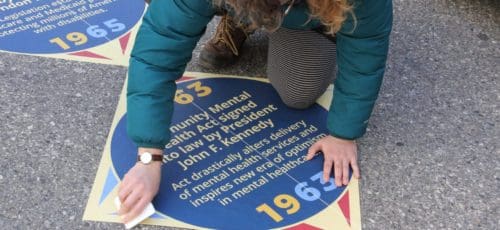Stop With The Fake Sold-Outs And Extended-by-Popular-Demand Lies
For a while now, theater companies (and other performing arts companies) have been roping off sections of the theater during a performance, limiting the number of seats, at times by half or more, then claiming the show is “selling out!” in order to attract attention. At times it might feel as if those ropes close in on whatever the audience size is so that the “sold out” claim can be made.
Now, if you are playing the Academy of Music or the Miriam, or some other enormous venue, and you close the top balcony and “sell out,” well, it’s more like a little lie, because you’re still selling a shitload of tickets and that means lots of people are coming to the performances. But when you are in a 150- to 250-seat theater, and you sell 75 tickets (or 55 tickets and 20 comps) and you claim to be selling out your show, you are completely full of shit and only damaging yourself.
The problem isn’t just that you are lying to the public and your audiences, who after one or two times of this, don’t believe a word you say. The problem is also that you are buying into your own lies. It is not a good marketing strategy to lie to make yourself feel better. When a theater is half full, the show is not a runaway success, no matter how many seats you’ve “closed off” for the night. For small and mid-size companies, embracing a strategy that limits your audience numbers, and ensures success only through doublespeak, is not a good plan for growth. Because you are separating reality from work. You are embracing your own fantasy. How in god’s name do you plan responsibly to gain an audience?
Similarly, people may have noticed a lot of suspicious “Extended By Popular Demand!” show extensions that have no basis in popularity, announced at the beginning of a run, even though you may have just heard about this play from your friend in it. And then there are also plenty of seats available—look even some discounted ones—for the originally announced run. These are not runs extended by popular demands, these are pre-planned runs that are announced as extensions by popular demand in a desperate attempt to generate unwarranted publicity.
What I find amusing about these strategies is that if a large corporation, or a government practiced a similar model, 99% of those involved in these artistic endeavors would cry foul. Yet, such deliberately truth-obscuring practices are fine when it comes to your own work. But more importantly, it’s just stupid. I’m not against Barnum and Bailey trickery, but a) they had much larger audiences to begin with, and b) you can’t keep having a one-time trick meant to fool people become a marketing practice.
How many times do you think that media outlets are going to get the same press release about sell outs and extended runs before they ignore them because it’s common knowledge that both claims are lies? And how often does your core audience hear this nonsense before they tune you out as well, because they are also aware that your claims are only “true” if you completely redefine the word “truth?” And why in god’s name, do you want your staff and board to measure runaway success not in terms of actual numbers, but by the phony announcements you make?
–Said Johnson
P.S. If Sting sells out Wachovia Center, then adds a second show because of popular demand, it may have been pre-planned. (Though if sales for show #1 weren’t good, #2 would not have been added.) But that announcement is made after the first show sells out like 20,000 tickets, then the next one does too. If you are a performing arts company struggling to get people to see a show, and you believe that Sting gets audiences merely because his marketing team claim sold out shows, you are an idiot.


